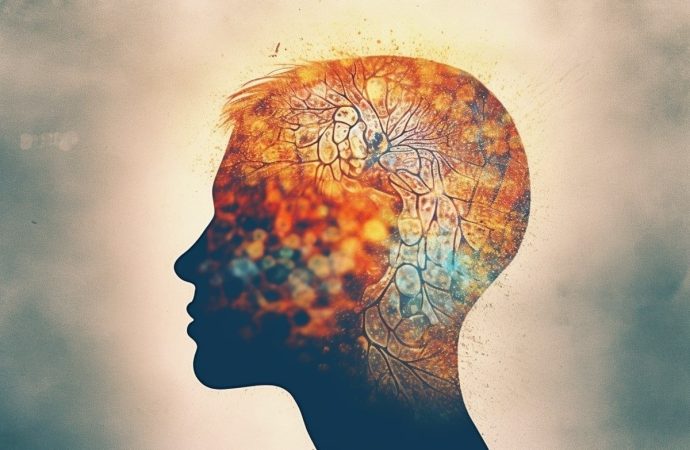About the Author Dr. Alex Turner, a renowned psychiatrist and global health expert, has dedicated their career to understanding and addressing the global mental health crisis. With extensive experience in both clinical practice and research, Dr. Turner brings a unique perspective to this critical issue. Introduction The world is in the midst of a silent
About the Author
Dr. Alex Turner, a renowned psychiatrist and global health expert, has dedicated their career to understanding and addressing the global mental health crisis. With extensive experience in both clinical practice and research, Dr. Turner brings a unique perspective to this critical issue.
Introduction
The world is in the midst of a silent epidemic – a mental health crisis that is affecting people of all ages, genders, and socioeconomic backgrounds. The gap between the growing need for mental health services and the available resources is widening at an alarming rate. It’s time to bridge this gap and prioritize mental health on a global scale.
The Mounting Toll of Mental Illness
Mental health disorders are a leading cause of disability worldwide. Depression, anxiety, and bipolar disorder are among the most prevalent conditions, with devastating consequences for individuals, families, and societies. The economic burden of mental illness is immense, impacting productivity, healthcare costs, and overall societal well-being.
The Global Mental Health Landscape
The global mental health landscape is a complex tapestry woven with disparities, challenges, and opportunities. While some countries have made significant strides in addressing mental health, others continue to struggle with limited resources, inadequate infrastructure, and pervasive stigma.
Picture by: https://www2.deloitte.com/us/en/insights/industry/health-care/future-of-behavioral-health.html
Disparities in Mental Health Care
Access to mental health care varies widely across different regions and socioeconomic groups. High-income countries generally have better-developed mental health systems compared to low- and middle-income countries, where resources are scarce and access to care is often limited to urban areas.
Moreover, marginalized populations, including women, children, adolescents, older adults, and individuals with disabilities, face additional barriers to care. These groups are often disproportionately affected by mental health conditions and have limited access to appropriate support services.
The Burden of Mental Illness
The global burden of mental illness is substantial. Depression is a leading cause of disability worldwide, affecting millions of people and contributing to a significant economic loss. Other common mental health conditions, such as anxiety disorders, bipolar disorder, and schizophrenia, also have a profound impact on individuals and societies.

Picture by: Yandex.com
The Role of Stigma
Stigma remains a major obstacle to seeking and accessing mental health care. Negative attitudes, discrimination, and fear of judgment prevent many people from disclosing their mental health struggles. This can lead to isolation, delayed treatment, and increased suffering.
To effectively address the global mental health crisis, it is essential to challenge and dismantle stigma through education, awareness campaigns, and social change initiatives.
Stigma: The Silent Killer
Stigma is a pervasive and insidious barrier to mental health care. It is the silent killer that prevents people from seeking help, disclosing their struggles, and accessing the support they need. The fear of judgment, discrimination, and social isolation can be overwhelming, leading to feelings of shame, guilt, and hopelessness.
The Impact of Stigma
Stigma can have devastating consequences for individuals living with mental illness. It can lead to:
- Delayed treatment: People may avoid seeking help due to fear of being stigmatized.
- Isolation and loneliness: Stigma can lead to social withdrawal and a lack of support.
- Reduced self-esteem: Negative attitudes towards mental illness can damage a person’s self-worth.
- Increased risk of suicide: Stigma can contribute to feelings of hopelessness and despair.
Challenging Stigma
To effectively address the global mental health crisis, it is essential to challenge and dismantle stigma. This requires a multi-faceted approach that includes:
- Education and awareness: Increasing public understanding of mental illness can help reduce stigma.
- Media portrayal: Challenging negative stereotypes in media can promote a more positive image of mental health.
- Policy changes: Implementing anti-discrimination laws and policies can protect the rights of people with mental illness.
- Personal stories: Sharing personal experiences can help break down stigma and inspire hope.
By working together to challenge stigma, we can create a more supportive and inclusive society for people living with mental illness.
The Role of Policymakers
Policymakers play a crucial role in shaping the mental health landscape. By prioritizing mental health and implementing evidence-based policies, governments can significantly improve access to care, reduce stigma, and promote mental well-being.
Investing in Mental Health
Governments must allocate adequate resources to mental health services, including prevention, treatment, and rehabilitation. This involves increasing funding for research, training healthcare professionals, and expanding access to mental health care in communities.
Policy Reforms
Implementing policy reforms is essential to create a supportive environment for people living with mental illness. This includes:
- Anti-discrimination laws: Protecting the rights of individuals with mental health conditions.
- Workplace accommodations: Supporting employees with mental health challenges.
- Early intervention programs: Identifying and addressing mental health issues early on.
- Integration of mental health into primary care: Improving access to care.
Advocacy and Awareness
Policymakers must advocate for mental health and raise awareness about its importance. This includes:
- Public education campaigns: Reducing stigma and increasing understanding of mental illness.
- Collaborating with stakeholders: Working with healthcare providers, NGOs, and community organizations.
- Monitoring and evaluation: Tracking progress and making necessary adjustments to policies.
By taking decisive action and prioritizing mental health, policymakers can create a healthier and more resilient society for everyone.
Strengthening Mental Health Systems
Building robust and accessible mental health systems is essential for addressing the global crisis. This involves a comprehensive approach that focuses on prevention, early intervention, treatment, and recovery.
Primary Care Integration
Integrating mental health services into primary care settings can improve access and early detection of mental health conditions. By training primary care providers to identify and manage common mental health issues, we can reduce stigma and facilitate timely referrals to specialized care.
Community-Based Care
Community-based mental health services play a vital role in providing ongoing support and recovery. These services include:
- Peer support groups: Offering peer-to-peer support and connection.
- Crisis hotlines: Providing immediate assistance during mental health crises.
- Home-based care: Delivering care in familiar environments.
- Assertive community treatment: Intensive support for individuals with complex needs.
Workforce Development
Investing in the mental health workforce is crucial to meet the growing demand for services. This includes training psychiatrists, psychologists, counselors, and other mental health professionals. Additionally, it is essential to develop the capacity of primary care providers to address mental health concerns.
Technology and Innovation
Leveraging technology can enhance mental health care delivery. Telehealth, mobile apps, and online platforms can improve access to services, especially in remote areas. Additionally, research and innovation are needed to develop new treatments and interventions.
By strengthening mental health systems, we can provide the necessary support and care for people experiencing mental health challenges.
Investing in Prevention and Early Intervention
Prevention and early intervention are essential for reducing the burden of mental illness. By investing in these areas, we can identify and address mental health challenges before they escalate into more severe conditions.
Promoting Mental Well-being
Creating supportive environments that foster mental well-being is crucial for prevention. This includes:
- Promoting resilience: Building coping skills and resilience through education and training.
- Reducing stress: Implementing stress management strategies in schools, workplaces, and communities.
- Encouraging social connection: Fostering strong social networks and support systems.

Picture by: https://rachelschallenge.org/
Early Identification and Intervention
Early identification of mental health problems is key to effective intervention. This involves:
- Screening and assessment: Implementing screening tools to identify individuals at risk.
- School-based mental health programs: Providing mental health support for students.
- Workplace mental health programs: Promoting mental well-being in the workplace.
Targeted Prevention Programs
Developing targeted prevention programs for specific populations can be effective. This includes:
- Youth mental health programs: Addressing the unique challenges faced by young people.
- Maternal mental health programs: Supporting the mental health of pregnant and postpartum women.
- Older adult mental health programs: Promoting mental well-being in later life.
By investing in prevention and early intervention, we can significantly reduce the prevalence of mental illness and improve the overall mental health of populations.
The Power of Community and Support
Community plays a vital role in mental health recovery and resilience. Strong social connections provide a sense of belonging, support, and hope. By fostering supportive communities, we can empower individuals to overcome challenges and thrive.
Building Supportive Communities
Creating supportive communities involves:
- Reducing stigma: Challenging negative attitudes and promoting understanding.
- Building social networks: Encouraging people to connect with others in their community.
- Empowering individuals: Providing opportunities for individuals to contribute and participate.
- Creating safe spaces: Establishing environments where people feel accepted and supported.
The Role of Peer Support
Peer support is a powerful tool for mental health recovery. By connecting with others who share similar experiences, individuals can find empathy, understanding, and practical advice. Peer support groups can offer a sense of belonging and hope.
Family and Caregiver Support
Families and caregivers play a crucial role in supporting individuals with mental health challenges. Providing education, support, and resources to family members can improve outcomes for both the individual and their loved ones.
By investing in community-based support, we can create a network of care that helps individuals reach their full potential.
A Call to Action
The global mental health crisis demands urgent and concerted action. It is a complex issue that requires a multifaceted approach involving individuals, communities, governments, and healthcare providers.
Individual Actions
- Seek help: If you are struggling with your mental health, don’t hesitate to seek professional help.
- Challenge stigma: Educate yourself about mental illness and challenge negative stereotypes.
- Practice self-care: Prioritize your mental well-being through healthy lifestyle choices.
- Support others: Offer support to friends, family, and colleagues who may be struggling.
Community Involvement
- Volunteer: Contribute to mental health organizations or support groups.
- Raise awareness: Organize events or campaigns to promote mental health awareness.
- Build connections: Foster a sense of community and support within your neighborhood.
Policy and System Changes
- Advocate for mental health: Contact your elected officials to support mental health policies.
- Demand increased funding: Advocate for increased investment in mental health services.
- Hold leaders accountable: Ensure that mental health is a priority on the global agenda.
Conclusion
Addressing the global mental health crisis requires a collective effort. By working together, we can create a world where everyone has access to the support and resources they need to thrive. It’s time to bridge the gap and prioritize mental health as a fundamental human right.
Let’s make mental health a global priority.

















